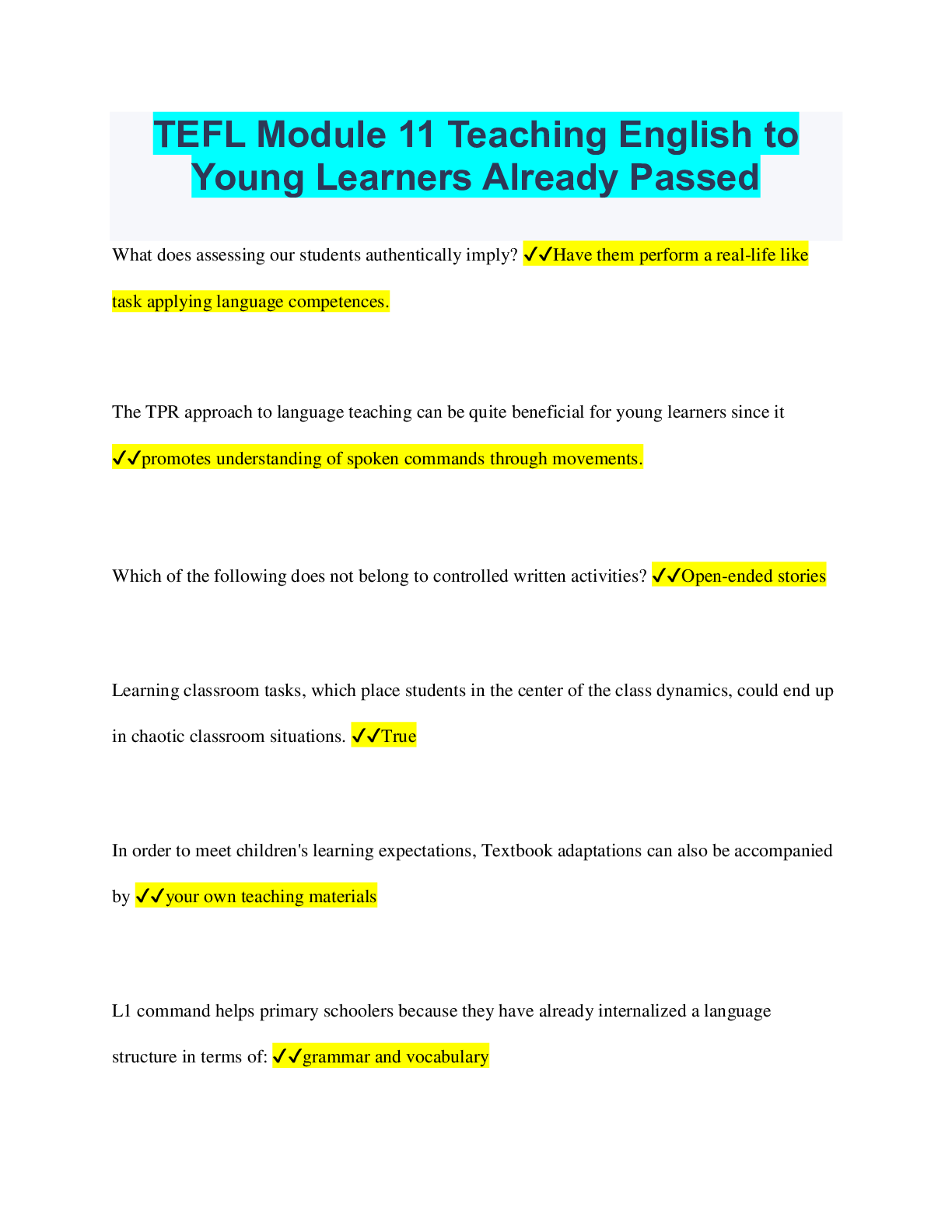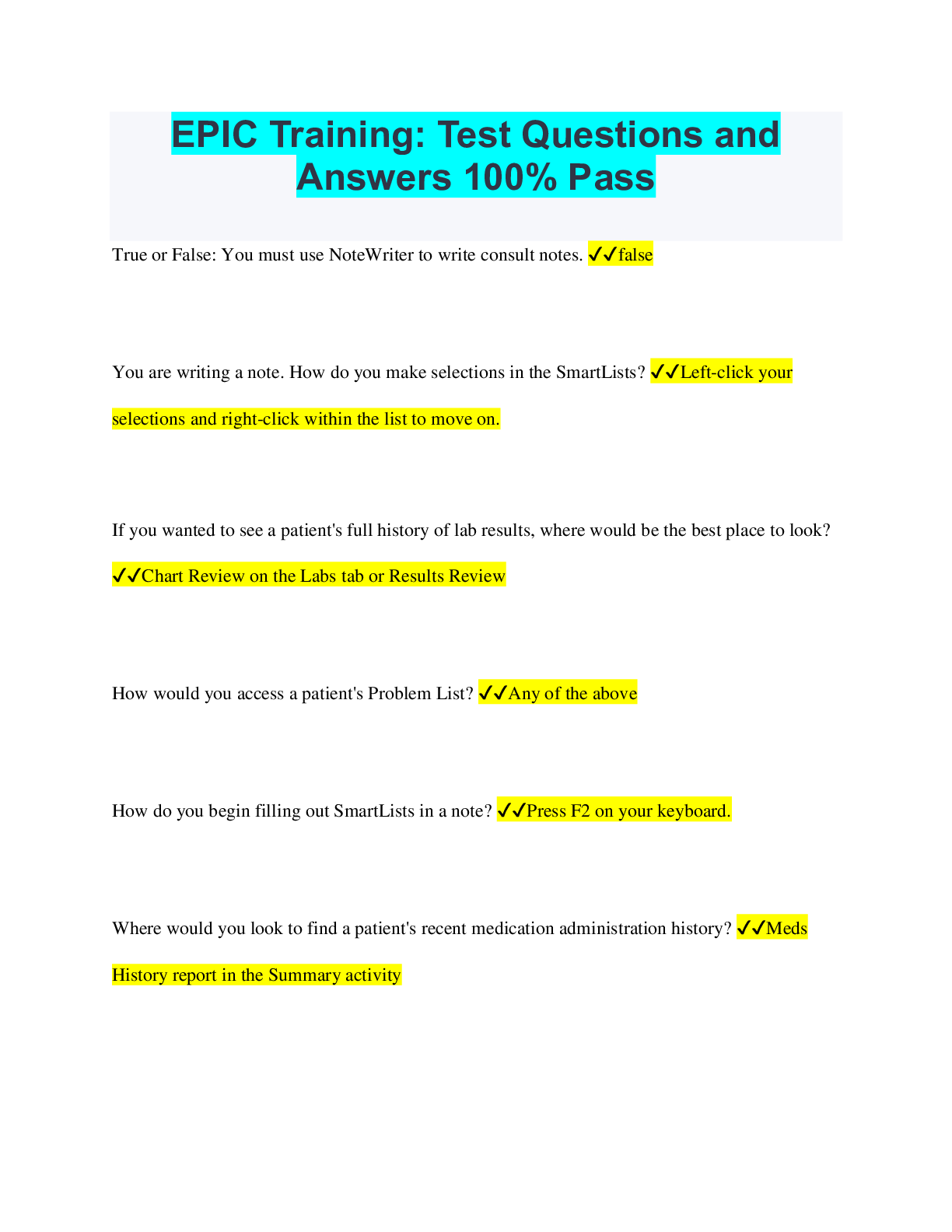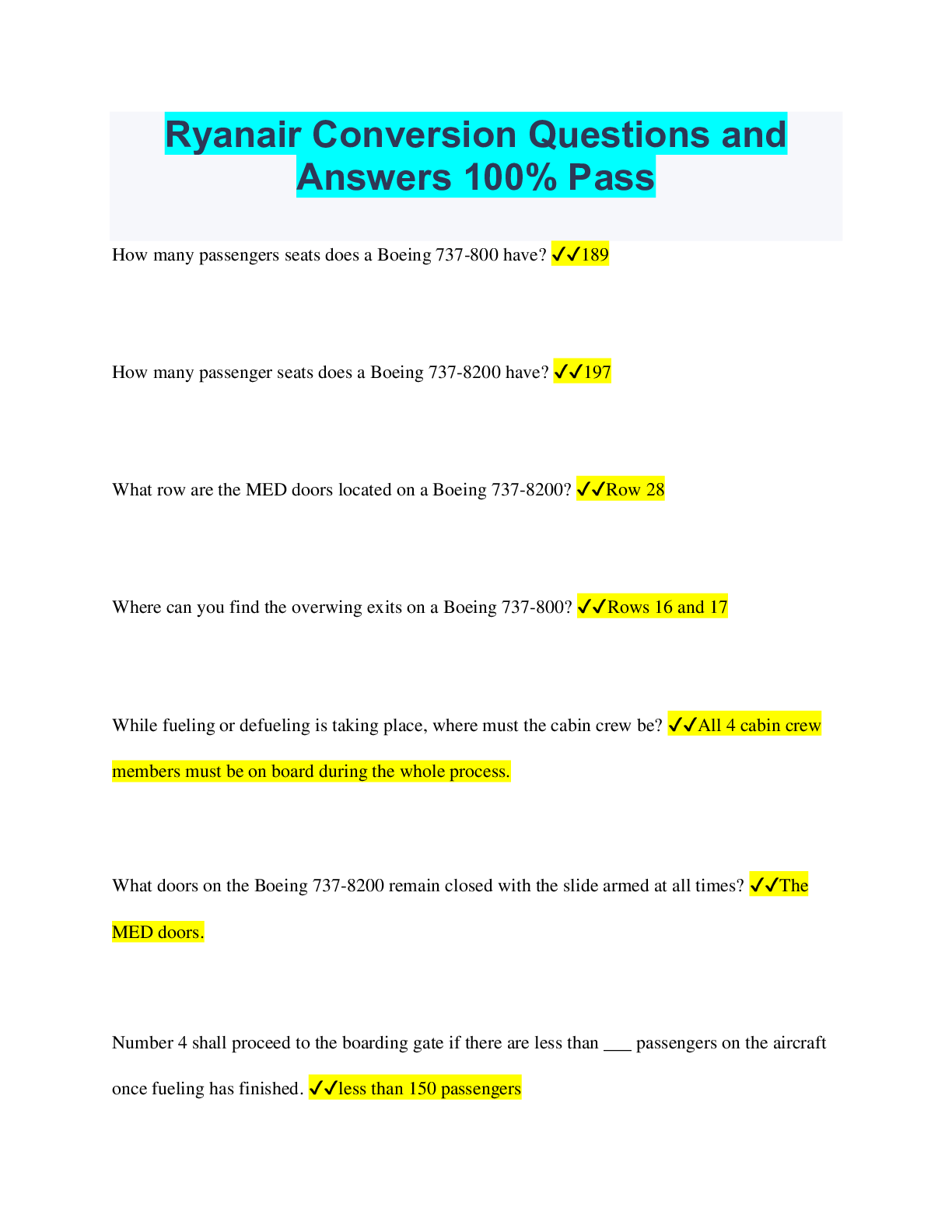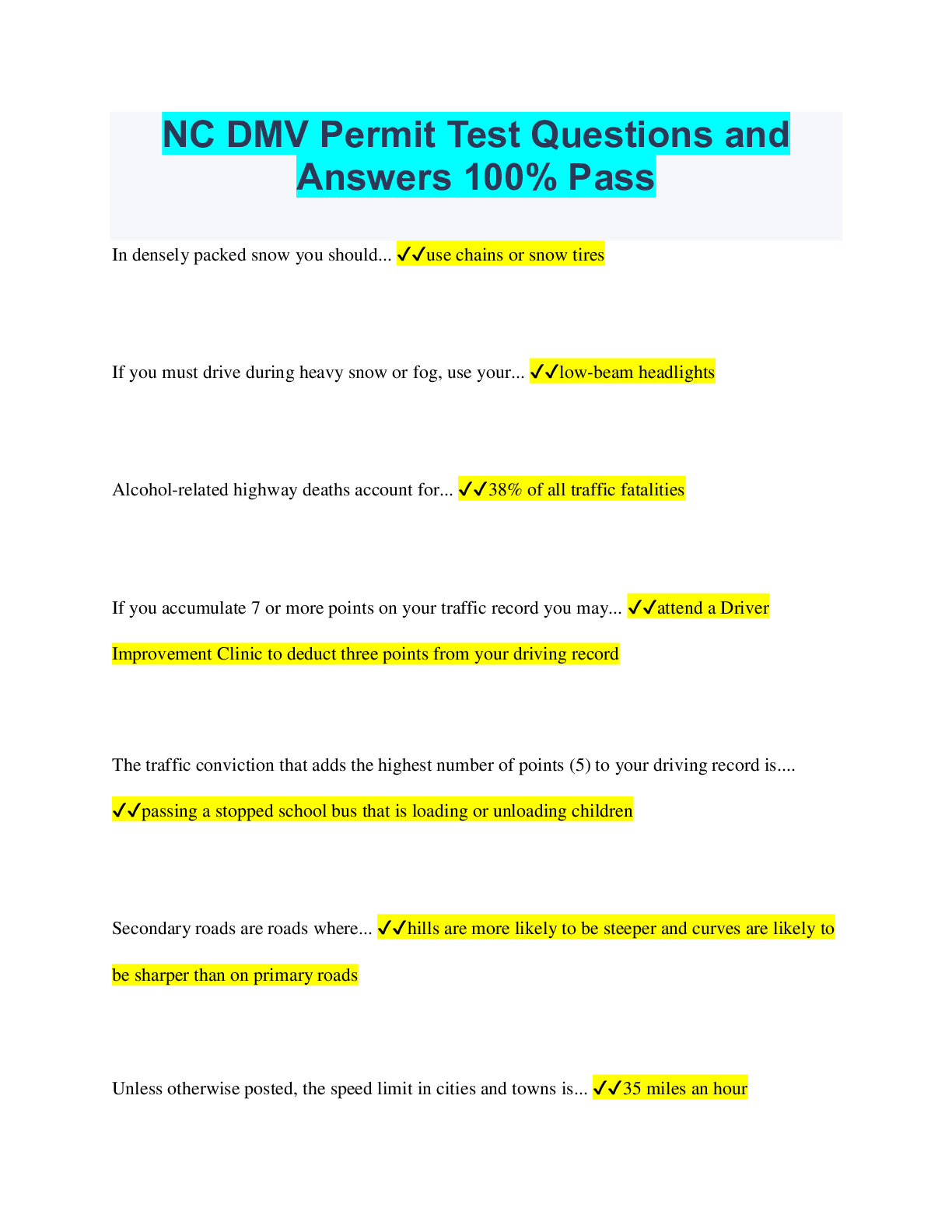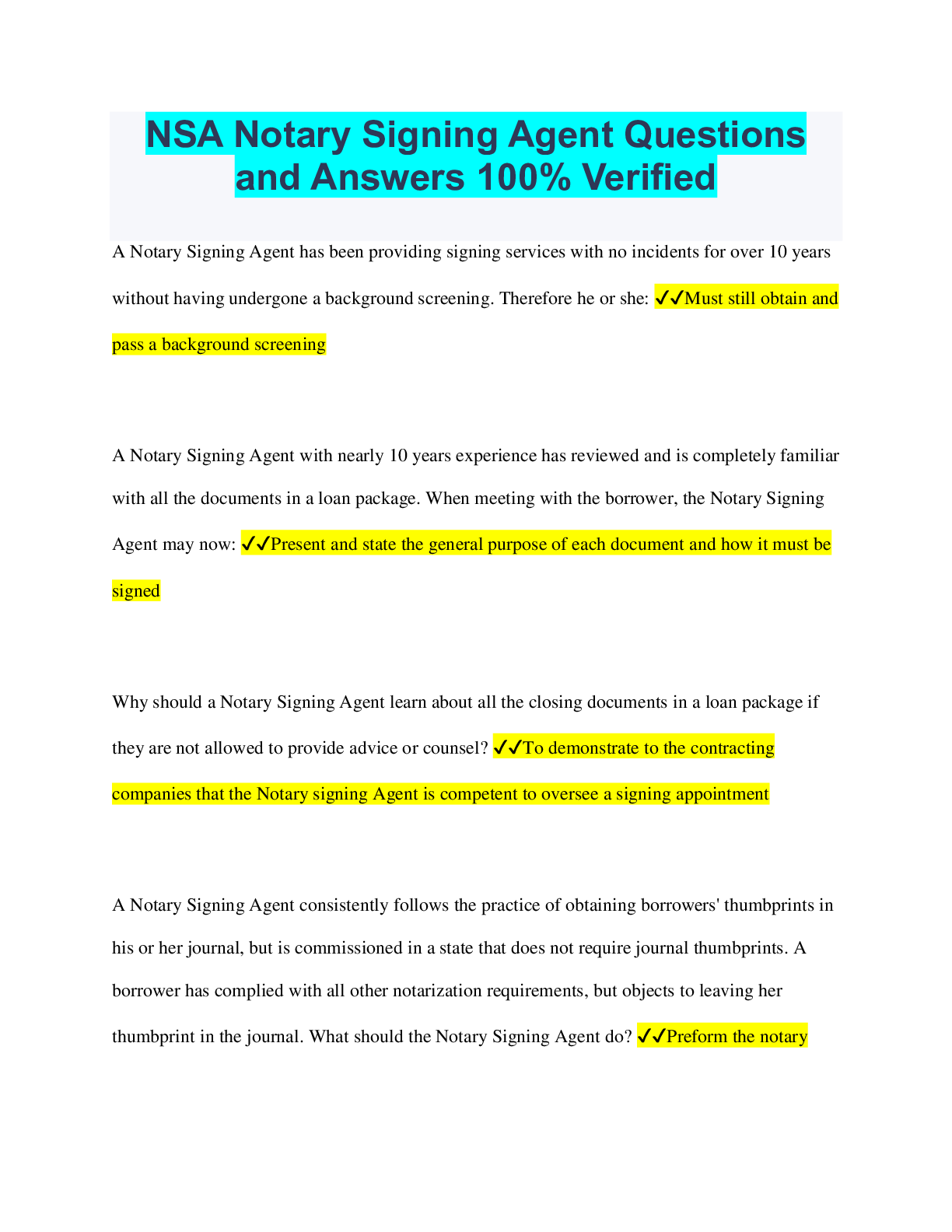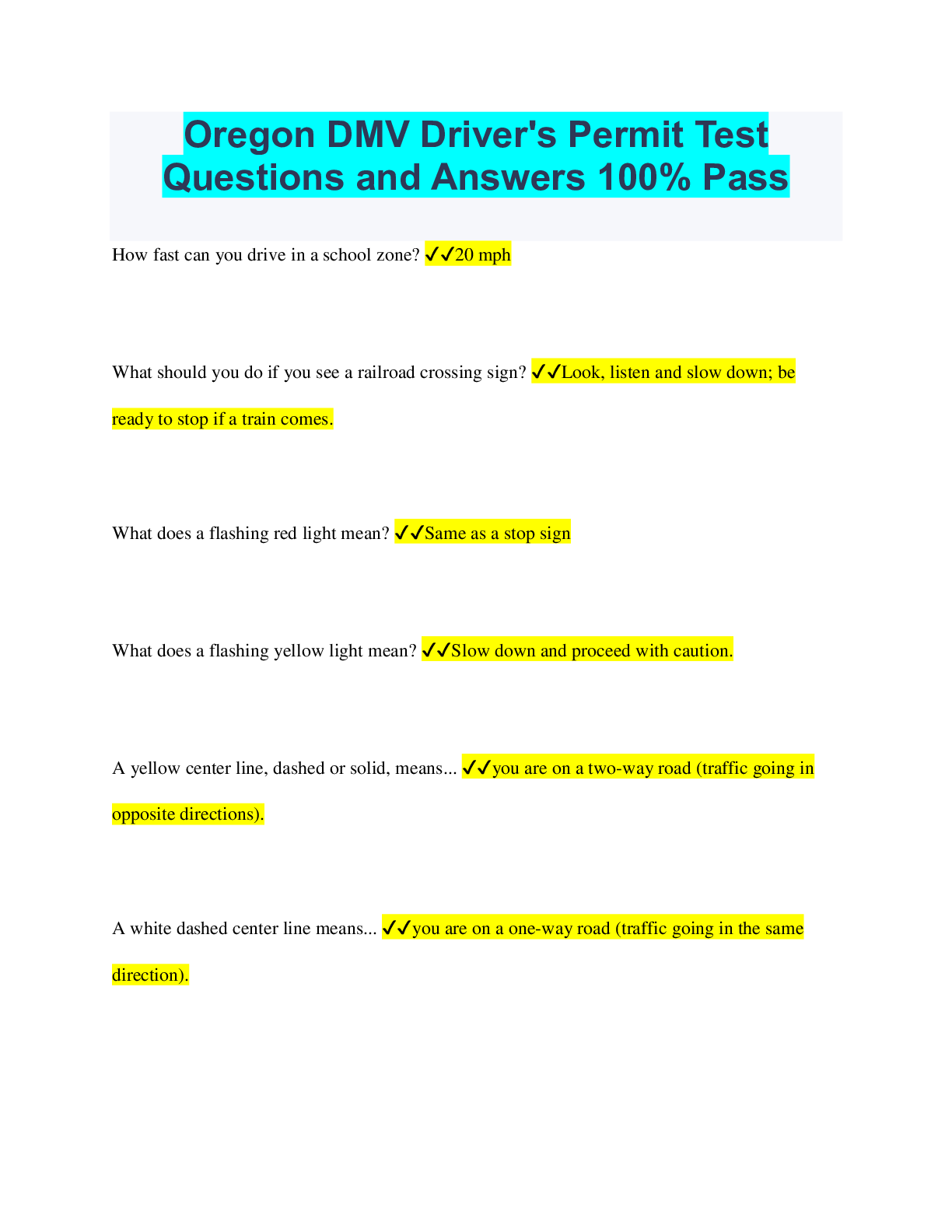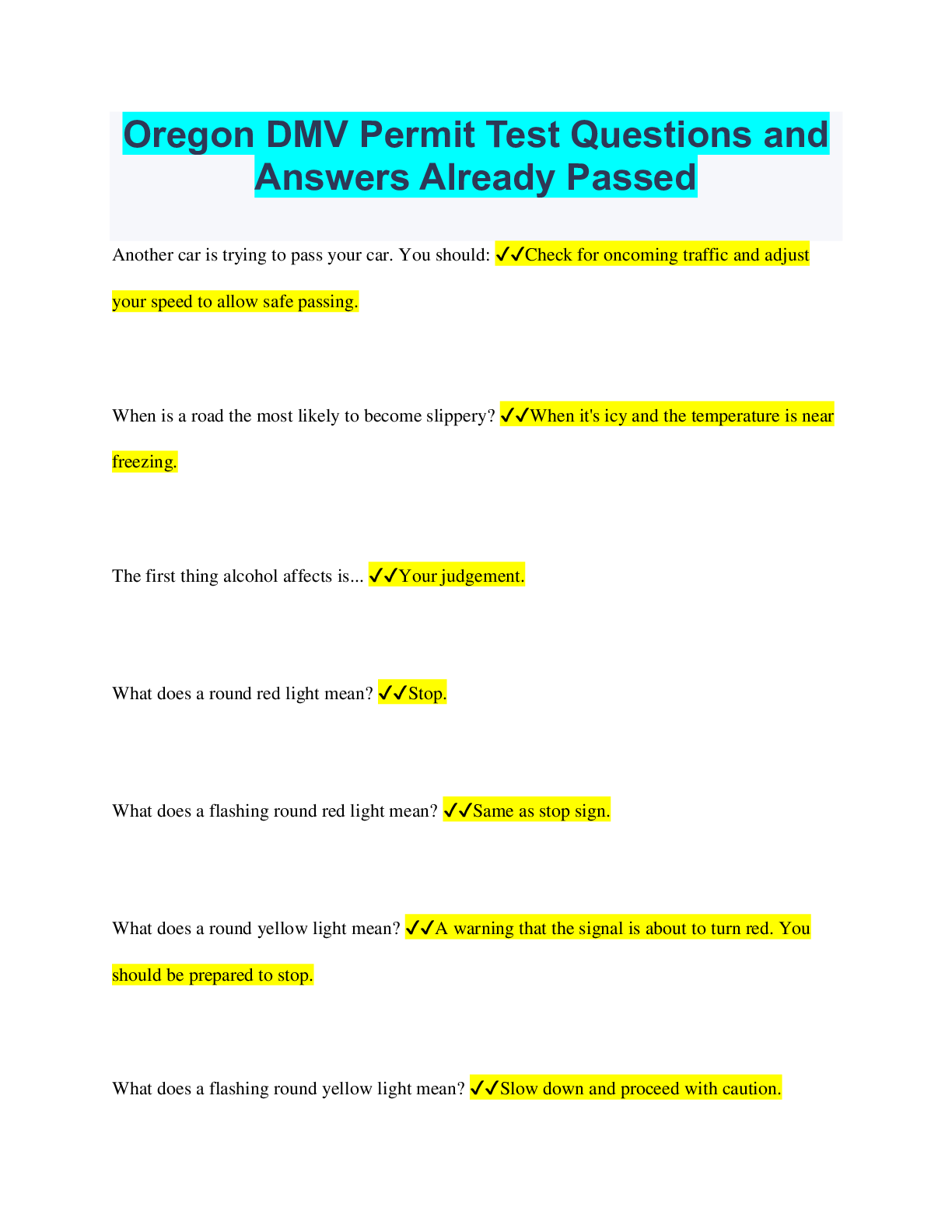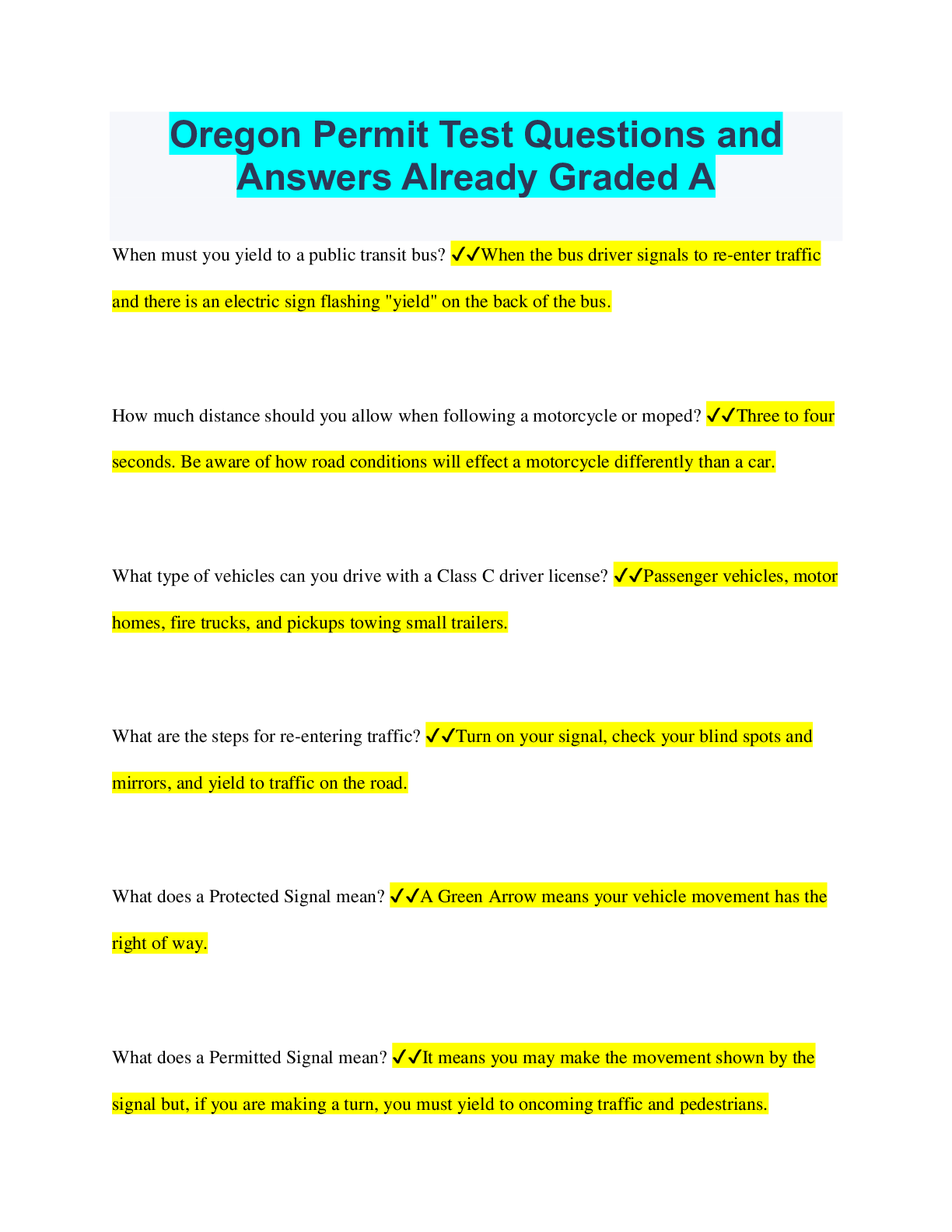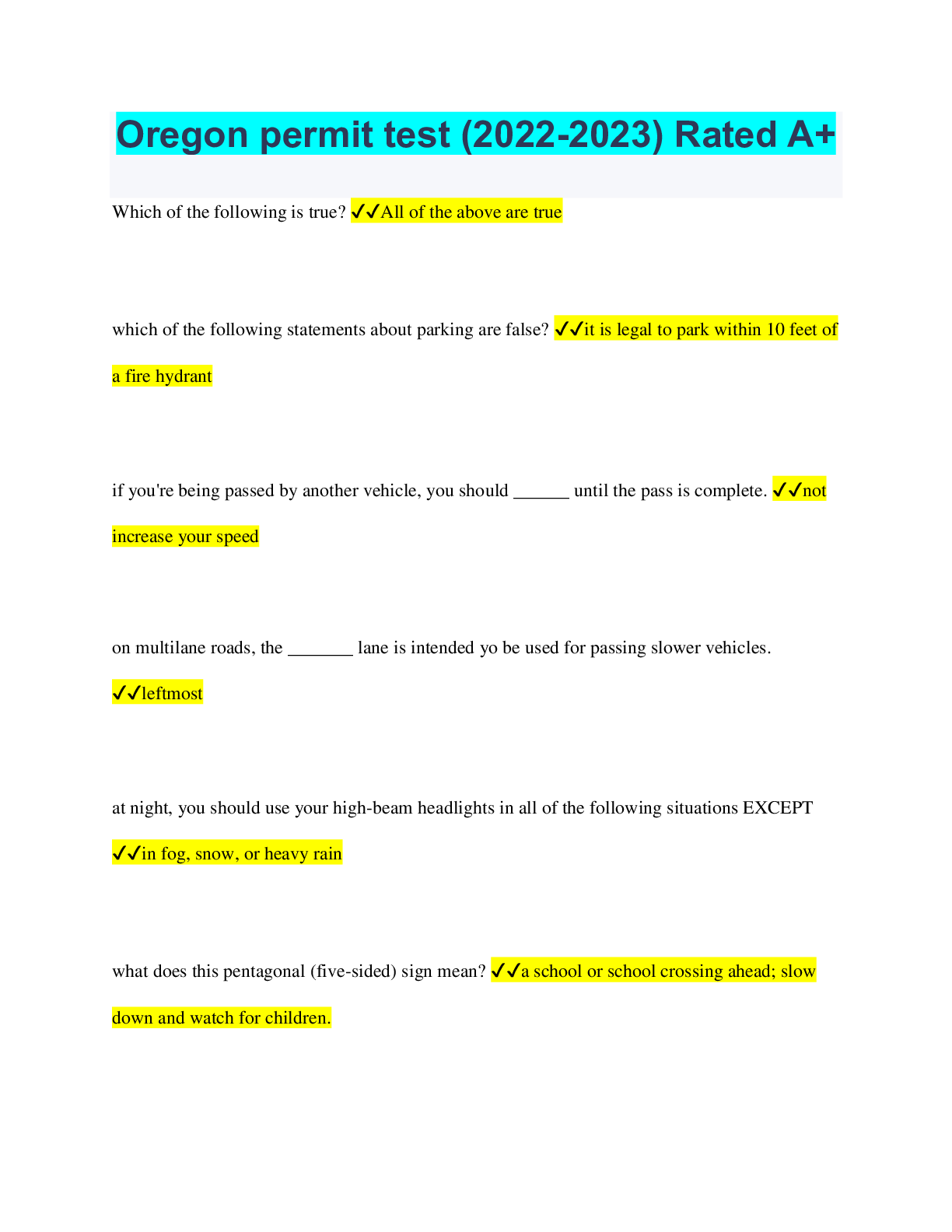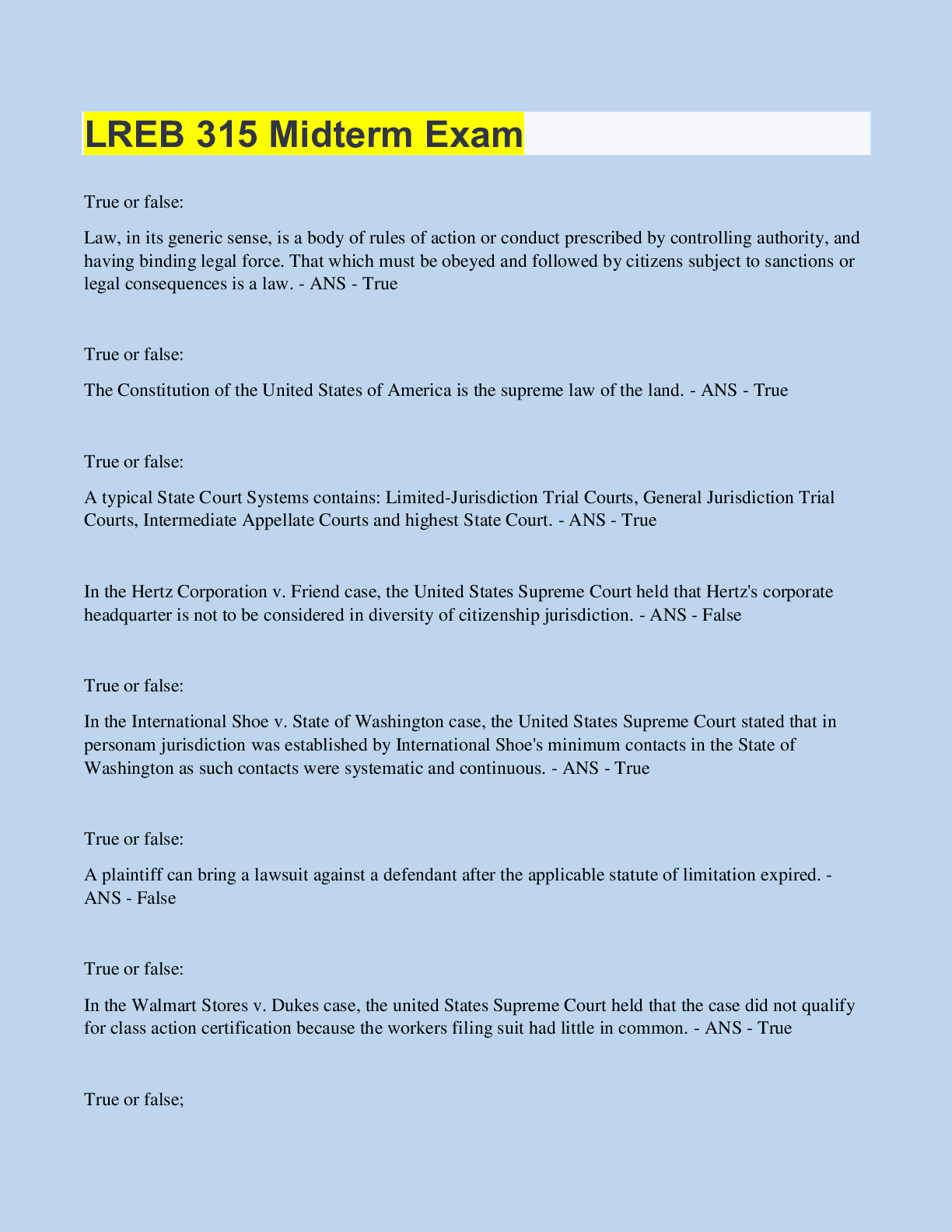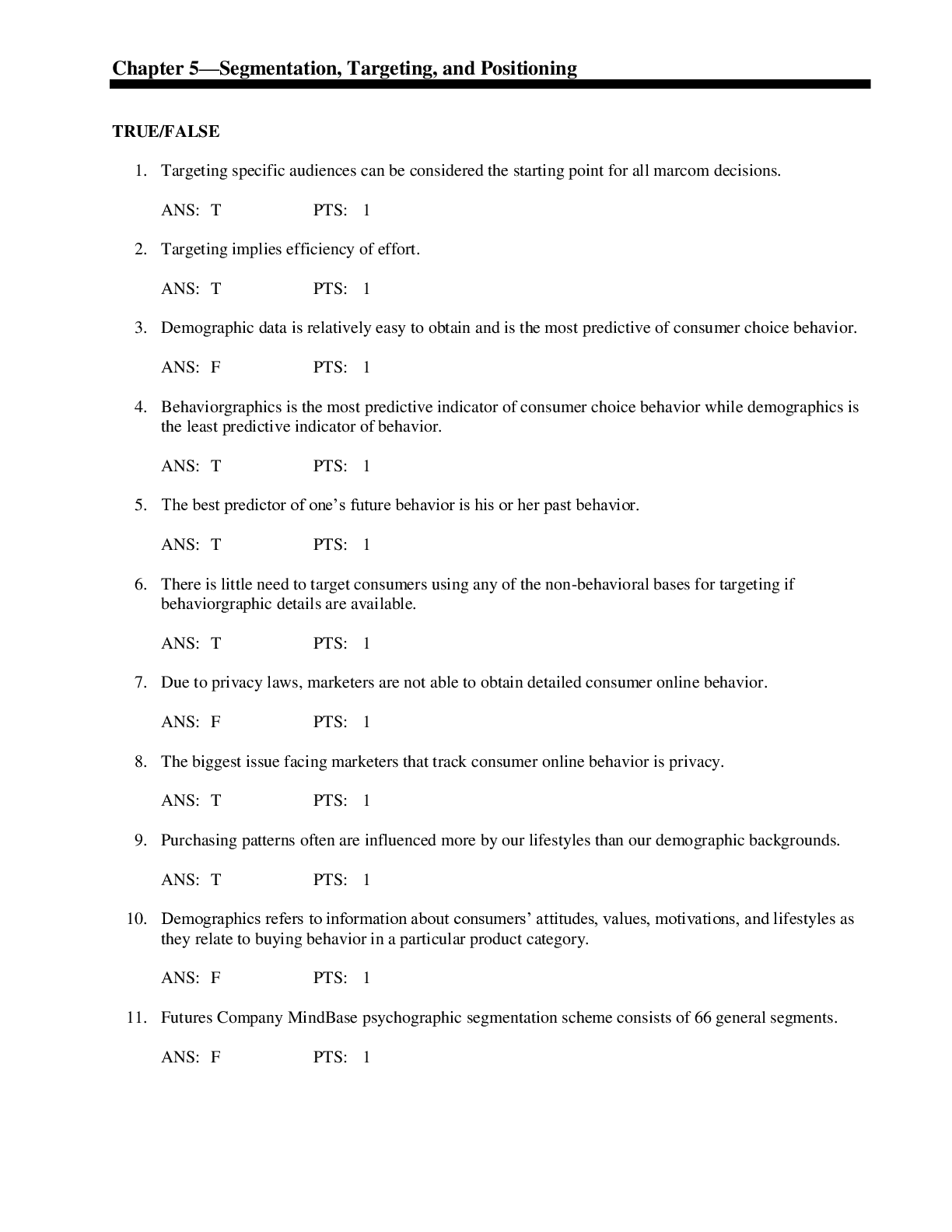Psychology > QUESTIONS & ANSWERS > AQA A Level Psychology Biopsychology Questions and Answers Already Graded A (All)
AQA A Level Psychology Biopsychology Questions and Answers Already Graded A
Document Content and Description Below
AQA A Level Psychology Biopsychology Questions and Answers Already Graded A What is the nervous system ✔✔The nervous system is a specialised group of cells in our body and is our primary commu... nication system, it collects processes and responds to different information and co-ordinates the working of different functions within the body. It is made up of both the central nervous system and the peripheral nervous system. What is the central nervous system (CNS) ✔✔The CNS includes the brain and the spinal cord, the brain is the centre of all conscious awareness and it is the outer layer, the cerebral cortex, which distinguishes us from animals. The spinal cord is an extension o the brain and is responsible for our reflexes and movements. The spinal cords main function is to relay information from the brain to the rest of the body. The brain is made up of four main areas, the brain stem, the diencephalon, the cerebellum and the cerebral cortex. The brain stem regulates automatic functions such as breathing and swallowing. The diencephalon comprises the thalamus which takes nerve impulses from the senses to the brain and the hypothalamus that regulates body temp and hunger. The cerebellum that controls motor skills and balance co-ordinating muscles to work together. The cerebral cortex is divided into four lobes each with a different function: POFT The Parietal lobe for sensory information The Occipital lobe for the processing of visual information The Frontal lobe for thought and speech The Temporal lobe for auditory information and memory What is the peripheral nervous system (PNS) ✔✔The PNS is divided into two main sections the first being the somatic nervous system. This is made up of 12 pairs of cranial nerves and 31 pairs of spinal nerves, containing both sensory and motor neurons it is also involved in reflex actions. The autonomic nervous system is much more complex, it essentially regulates involuntary actions such as heart rate without any conscious awareness. It is made up of the sympathetic nervous system and the parasympathetic nervous system which have opposing effects on the body. The sympathetic nervous system helps us deal with emergencies (fight or flight), it increases the heart rate, blood pressure and dilates pupils. It can also shut down non essentials like digestion. The parasympathetic nervous system has the opposite effect of the fight or flight, as this response triggers homeostasis. This relaxes the individual after the emergency, slowing heart rate and non essentials back on. What are neurons and outline the three main ones ✔✔Neurons are specialised cells designed for the transmission of information throughout the body, there are three types: Sensory neurons, these carry impulses from receptors to the spinal cord/brain. Relay neurons allow sensory and motor neurons to communicate with each other, located in the brain and spinal cord. Motor neurons from synapses with muscles and when an impulse travels down the motor neuron it causes the muscle to contract. Outline synaptic transmission ✔✔Action potential is the electrical signal that travels down the neuron to the axon ready to be passed on. To cross a synaptic junction the end of an axo [Show More]
Last updated: 2 years ago
Preview 1 out of 25 pages
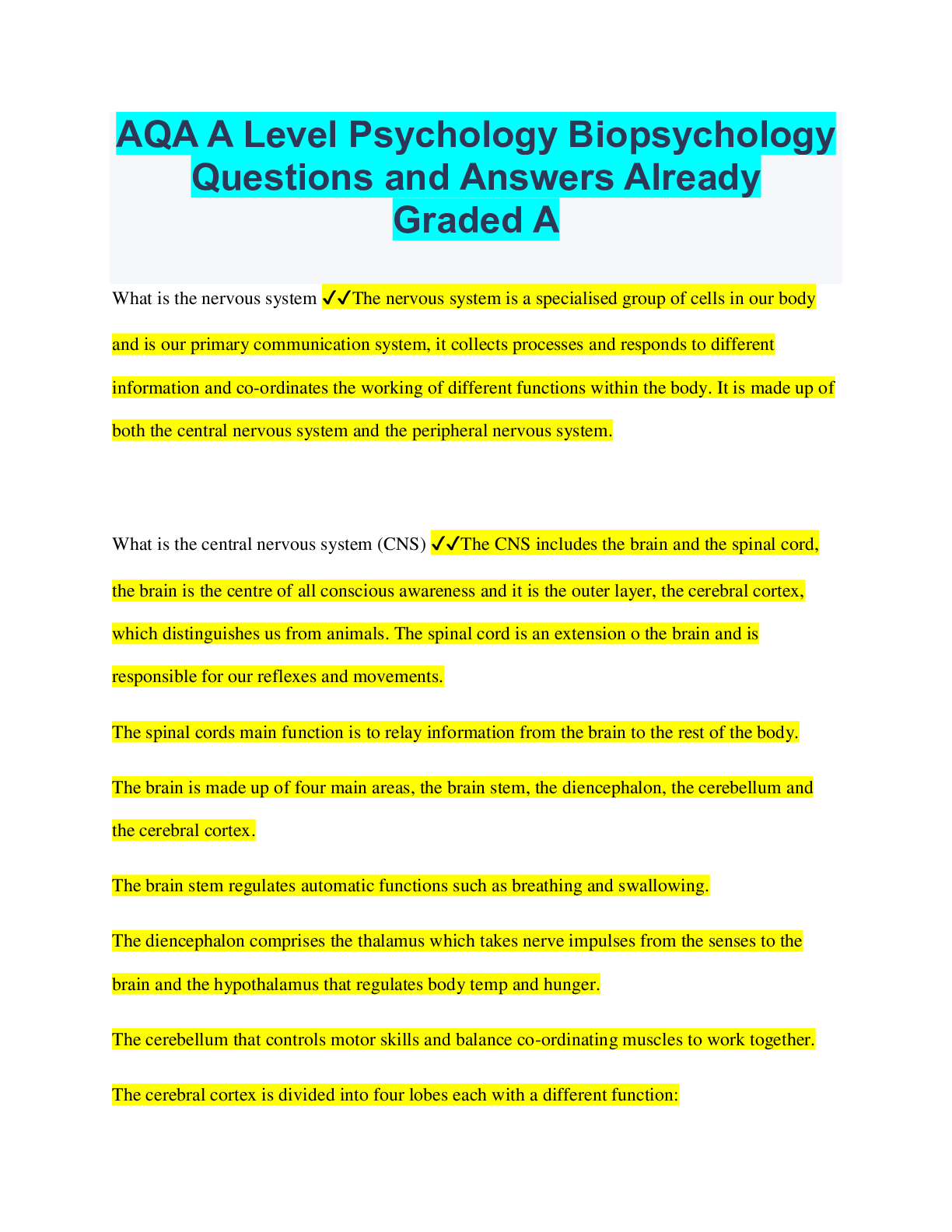
Buy this document to get the full access instantly
Instant Download Access after purchase
Buy NowInstant download
We Accept:

Also available in bundle (1)

AQA A Level Psychology Biopsychology Bundled Exams Questions and Answers Already Graded A
AQA A Level Psychology Biopsychology Bundled Exams Questions and Answers Already Graded A
By Nutmegs 2 years ago
$18
6
Reviews( 0 )
$10.00
Can't find what you want? Try our AI powered Search
Document information
Connected school, study & course
About the document
Uploaded On
May 08, 2023
Number of pages
25
Written in
Additional information
This document has been written for:
Uploaded
May 08, 2023
Downloads
0
Views
90

.png)

